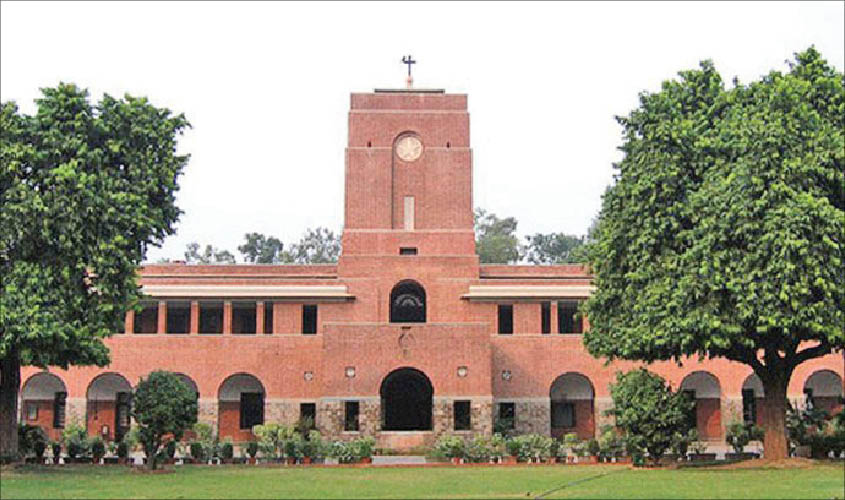In the Army, Navy, Air Force, Stephenians have attained the highest ranks, also in media establishments.
I joined St. Stephen’s in July 1948. I opted for History (Hons). Gandhiji had been assassinated six months earlier. The gloom still hung over the city. Delhi’s population increased from three lakh to half a million on account of the influx of refugees. Only the Sikhs did not beg. They sold trinkets, worked in shops for pittance.
The student population of the college was 370; 120 lived in residence. I was allotted a room in Rudra South, which was Spartan, but not uncomfortable. My history teachers were E.R. Kapadia, Ian Shankland, Mohammed Amin (he joined the staff in 1949, aged 23).
David Raja Ram was the principal. A Jat converted to Christianity, his spoonerisms delighted one and all. He introduced Countess Mountbatten and Mountess Countbatten. The Vice-Principal was S.G. Sircar. Pandit Lachmi Dhar Shastri taught Sanskrit. He had been the high priest at the wedding of Indira Gandhi in March 1942 in Allahabad. S.K. Bose had a unique status. He was at Cambridge in the 1920s. In St. Stephen’s he taught philosophy and was in charge of games. We had to bicycle to get to the playgrounds, which were next to the Kashmere Gate. Everyone, including Principal Raja Ram called him Bose Sahib. He was a chain-smoker, with lungs of steel. I became a favourite, got college colours in tennis, hockey
The college union was the place where debating skills were tested. I was elected president of the union in my third year. I invited ministers, foreign secretaries, educationist, Members of Parliament etc., to address the union.
Transport was a scarcity, only bus no. 9 took one from Kashmere Gate to Connaught Place. The fare, if I remember rightly, was two annas. A cinema ticket in the upper gallery in the Regal cost 12 annas.
Outside the college café presided Sukhia, whose pedas and barfi were in great demand. He was an institution, who disregarded authority with impunity. When I was ambassador to Pakistan, President Zia-ul-Haq, a Stephenian, asked me how Sukhia was.
The University Coffee was immensely popular. There we drank cold coffee with straw, ate tomato sandwiches and befriended Miranda House girls. The most sought after was the stunningly beautiful Sagarie from Coorg. It was impossible not to fall for her.
When I joined in 1948, four postgraduate girls were the last to adorn the college corridors. For the next 40 years the college was an all-male institution.
With the rapid growth in Delhi’s population, the pressure on admissions increases by the year. Yesterday, I attended an ex-Stephenian get-together at the Gymkhana Club. I was the oldest old “boy” present. I asked one young ex-student what the number of students was. The answer shook me: “About 2,000. Those in residence have not increased.”
Despite this numerical inflation the academic excellence of St. Stephen’s has not diminished. Large numbers get selected to the Indian Foreign Service, the IAS, IFS, Central services. In the Army, Navy, Air Force, Stephenians have attained the highest ranks, also in the media and corporate establishments.
Inevitably, when numbers increase, excellence suffers. As I have said earlier, the college has maintained its high quality. The opening of the economy in the early 1990s of the last century, to a considerable extent extended the job market in the corporate sector. Here too Stephenians are sought after.
The accusation that St. Stephen’s produces insufferable snobs is an unjustified slur.

